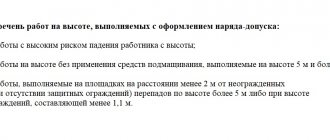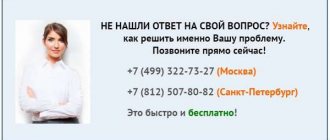Historical reference
The roots of the auditor profession go back to ancient times. For example, in Greek Athens in the 5th century BC, the income and expenses of the state were controlled by the people's assembly. But in the Roman Empire this was done by the Senate and hired auditors.
In England, the first law was passed in the 1860s, according to which enterprises were required to conduct audits annually. Around the same period, similar law enforcement acts were introduced into practice in France and other European developed countries.
What was the impetus for the adoption of laws on audit activities? It turns out that the reason was a clash of interests between the owners of production and those who were hired to manage them. Having reasons not to trust the information provided in the reports by accountants, the owners and shareholders called auditors for an audit. Thus, the owners had the opportunity to check the correctness of the figures received from their subordinates.
In Russia, auditors appeared several centuries ago. Since then, this profession has changed significantly. In the 18th century, the main duties of the inspector were to take a census of the tax-paying population for the purpose of calculating taxes. Today, the professional functions of an auditor have not only grown significantly in scope, but have also changed dramatically.
Job responsibilities
The auditor is assigned the following job responsibilities:
2.1. Preparation of an audit (inspection) program and the necessary audit materials.
2.2. Carrying out scheduled and unscheduled audits of the organization’s economic and financial activities for maintaining records of property, liabilities and business transactions.
2.3. Control over the inventory of retail outlets and warehouse facilities.
2.4. Control over the accuracy of accounting for incoming fixed assets, inventory and cash, timely reflection in the accounting accounts of transactions related to their movement.
2.5. Identification of causes of losses based on inventory results.
2.6. Identification of excess and unused material assets for the purpose of subsequent sale.
2.7. Checking compliance with the rules and conditions for storing material assets, as well as the rules for their maintenance and operation.
2.8. Monitoring compliance with trade standards and regulations.
2.9. Monitoring the correctness of the organization’s primary documents on the movement of fixed assets, inventory and cash.
2.10. Organization of work to prevent losses, thefts and ensure the safety of inventory items.
2.11. Identification during the audit of facts of violations and abuses, indicating the perpetrators and the amount of material damage caused.
2.12. Timely registration of audit results and presentation of them to the management of the organization for taking the necessary measures.
2.13. Development of measures to eliminate shortcomings and irregularities in the work of the organization identified during the audit.
2.14. Carrying out control checks of completed work to eliminate deficiencies identified during the inventory.
2.15. Taking the necessary measures to use modern technical means in work.
2.16. [Enter as appropriate].
Description of the profession
The name of the auditor profession owes its origin to the Latin word revidere. It means “to look” or “to look after.” In principle, the essence of the work comes down to the meaning inherent in its name. Regardless of the area where the future auditor plans to work, his main task is observation and detailed collection of information about the object under study.
For example, the main purpose of inspecting an enterprise that produces food is to determine the general sanitary condition or control the quality of manufactured goods. The state auditor pays a visit to the tax authorities to determine the degree of quality in the performance of its functions by this service.
We emphasize that the auditor’s job is only to check a specific enterprise. He has no right to give independent orders or issue decrees. The controller must transfer all collected information to the relevant authorities, which will make decisions and take action.
Traditionally, auditors operate according to the following scheme:
- Receiving a task and developing a test plan.
- Conducting an audit.
- Drawing up a report for the owners of the company being inspected and for persons who have access to the relevant information.
Railway audit service
The position of auditor on the railway appeared in 1937. It was established due to an increase in the number of errors made by railway workers. Worker mistakes often led to dangerous situations on the tracks. Therefore, the authorities decided to create a special service and assign it the responsibility of monitoring everything that happens on the railway.
Let us note that the measures taken by the authorities were successful. The service coped with its tasks perfectly. To increase the efficiency of its work, the range of powers and responsibilities of auditors was gradually expanded.
Today, the railway audit service not only monitors the situation directly on the tracks and on trains, but also monitors the order in the documentation that accompanies activities in this area. In addition, any repair and construction work cannot be completed without its inspection and permission.
Financial Audit Commission
In the field of finance, the position of auditor appeared relatively recently. Along with it, a special body arose - the audit commission. Its main task is to monitor operations in the budget of the document-checked and “colored” – black and gray, that is, illegal – accounting department.
Members of the audit commission are elected at the board of directors or at a meeting of the joint stock company. This body must be absolutely independent and impartially fulfill its obligations. Only in this case can the company's owners gain confidence in the fruitful operation of their assets, which should be a source of profit and not loss.
In government agencies, audits are also not uncommon. The functions of the supervisory body are assigned to the permanent Accounts Chamber.
JOB DESCRIPTION OF THE AUDITOR
Downloads: 436
Job description of the Auditor
1. Basic provisions
1.1. The auditor of the Teorema hypermarket (hereinafter referred to as the “auditor”) reports directly to the head of the Teorema hypermarket (hereinafter referred to as the “hypermarket manager”), and during product audits he promptly reports to the chief accountant of the hypermarket (hereinafter referred to as the “chief accountant”). 1.2. The auditor is appointed and removed from office by order of the head of the hypermarket in agreement with the owners of the hypermarket. 1.3. During the absence of an auditor, he can only be replaced by another auditor. Replacing auditors with other hypermarket employees is not permitted. 1.4. A person who has a higher economic education without presenting requirements for work experience or secondary specialized education and work experience in the specialty of at least 1 year is appointed to the position of auditor. 1.5. The amount of remuneration for the auditor is determined by the hypermarket’s staffing table, which is approved by the head of the hypermarket. 1.6. The auditor must know: • Resolutions, instructions, orders, other governing and regulatory documents of higher authorities on the organization of accounting and reporting in terms of carrying out inventories and commodity audits. • Forms and methods of accounting and analysis of the economic activities of a hypermarket in terms of inventories and product audits. • Internal regulatory documents of the hypermarket regulating the implementation of technological processes for conducting audits. • Assortment matrix of the hypermarket • Fundamentals of economics, labor organization and management • Rules for working with computer and office equipment and applied computer programs • Labor legislation • Rules of internal labor regulations and employee behavior • Rules and standards of labor protection, safety, industrial sanitation and fire protection 1.6 .This instruction comes into force from the moment it is approved by the manager of the hypermarket. 1.7. The provisions of this instruction apply to the auditor after he has read it and signed it.
2. Purpose of the position
The main purpose of the position of auditor of the Teorema hypermarket is to monitor the actual availability of goods in the hypermarket with accounting data, including: • identifying the actual availability of goods on the sales floor and in the warehouse of the hypermarket; • comparison of the actual availability of goods with accounting data; • identifying mis-graded goods • making proposals to hypermarket management to prevent losses of goods and materials and mis-grades
3. Main functions
To achieve the main goals and objectives, the auditor performs the following functions:
4.1. Control of financial and economic operations and audits 4.1.1. Carrying out product audits in a hypermarket in order to control the compliance of the actual availability of goods with accounting data: 4.1.1.1. Planned general product audits in: • the hypermarket sales area, • in the warehouse • in-house production 4.1 .1.2. Selective (by product groups) product audits by order of the hypermarket manager in: • the hypermarket trading floor, • in the warehouse • in-house production 4.1.2. Preparation of a product audit: 4.1.2.1. Preparation of an order to conduct a product audit; 4.1.2.2. Preparation of a list of members of the audit commission; 4.1.2.3.Development of schedules for conducting a commodity audit 4.1.2.4.Familiarization of the members of the audit commission with the order to conduct a commodity audit; 4.1.2.5.Marking of commercial and warehouse equipment with goods to be scanned in accordance with the layout of the goods and commercial equipment in the sales area and warehouse; 4.1.2.6.Organization of scanning of goods subject to commodity audit 4.1.2.7.Control over scanning of goods placed on retail and warehouse equipment; 4.1.2.8. Control over the preparation and printing of inventory sheets to members of the commission for the recount of goods; 4.1.2.9. Distribution of members of the audit commission among areas subject to product audit. 4.1.3. Conducting commodity audits: 4.1.3.1. Conducting briefings with participants in the commodity audit; 4.1.3.2. Issuance of inventory sheets according to the list to participants in the commodity audit; 4.1.3.3. Arrangement of participants in the commodity audit in areas subject to inventory; 4.1.3.4. Monitoring the progress of the commodity audit and the correctness of calculations 4.1.3.5. Ensuring the collection of all inventory sheets with recalculated inventory items from members of the audit commission; 4.1.3.6. Monitoring the correct execution of inventory sheets in accordance with the requirements for their execution; 4.1.3.7. Keeping track of the time of participation of each member of the audit commission in conducting a product audit 4.1.4. Controlling the entry of data from inventory sheets into the hypermarket computer system for processing: 4.1.4.1. Controlling the timely entry of data into the hypermarket computer system; 4.1.4.2.Checking the accuracy of the data after entering it into the hypermarket computer system; 4.1.5.Transfer of entered product revision data to the information and analytics department for further processing. 4.1.6.Together with the information and analytics department, preparation of preliminary data based on the audit results. 4.1.7.Together with financially responsible persons, recalculation of goods with positive and negative inventory balances. 4.1.8.Re-counting goods with negative balances. 4.1.9. Correction of inventory balances in the inventory sheet after they have been clarified after a recount. 4.1.10. Output of the final results of the product audit. 4.1.11.Registration of documents based on the results of a commodity audit; 4.1.11.1.Printout of the final inventory sheet; 4.1.11.2. Drawing up a report on the shortage in the accounting department, 4.1.11.3. Signing the report with the accountant and the head of the self-service department; 4.1.11.4. Control of the provision by the head of the self-service department of an explanatory note about the reasons for the shortage of goods; 4.1.11.5. Signing of the shortage report from the manager of the hypermarket. 4.1.11.6. Submitting a fully completed shortage report and inventory sheet to the hypermarket accounting department; 4.1.11.7. Submission of inventory sheets to the hypermarket archive; 4.1.11.8. Preparation of lists for payment of overtime work of audit participants and submitting them to the head of the hypermarket for signature. 4.1.12.Checking cash reports. 4.1.13.Misgrading of goods: 4.1.13.1.Identification of misgrading of goods, 4.1.13.2.Analysis of the causes of misgrading 4.1.13.3.Development of measures to reduce misgrading. 4.1.13.4. Registration of documents for regrading. 4.1.13.5. To avoid misgrading, regularly print out lists of weighted goods for sellers. 4.1.13.6. In agreement with the managers of the sales department, adjusting the warehouse accounting file cabinet, namely, removing repeated barcodes from the file cabinet that cause misgrading. 4.1.13.7. Registration of re-equipment documents. 4.1.14.Participation in the development and implementation of measures aimed at reducing losses of goods and materials and ensuring the safety of hypermarket property. 4.1.15. General control over the timeliness of registration of the audit results and their presentation to the management of the hypermarket for taking the necessary measures 4.1.16. Giving prompt instructions to the heads of structural divisions of the hypermarket to eliminate identified violations and shortcomings
4.2. Ensuring document flow 4.2.1. Development of organizational and administrative documents for the work of the audit commission 4.2.2. Maintaining an archive of organizational and administrative documents of the audit commission 4.2.3 Control of document flow regulations 4.2.4. Providing management and organizational and administrative reporting
4.3. Structure 4.3.1 Participation in organizational structuring 4.3.1.1. Participation in the development of regulations on the structural divisions of the hypermarket 4.3.1.2 Development, coordination, approval and implementation of job descriptions and regulations on the audit commission
4.4. Technological processes 4.4.1.Participation in the development and optimization of technological processes for conducting commodity audits 4.4.2.Implementation of technological processes for conducting commodity audits 4.4.3.Management of technological processes, including: 4.4.3.1.Training in new technological processes hypermarket employees and their consulting 4.4.3.2. Monitoring the implementation of technological processes for conducting product audits 4. Rights
Inspectors, within the limits of their powers, have the right to: 4.2. Get acquainted with draft decisions of the management of the hypermarket and other structural divisions relating to its professional activities. 4.3. Interact with employees of all structural divisions of the hypermarket. 4.4.Within the limits of your authority, give other hypermarket employees and specialists mandatory instructions. 4.5. Endorse documents within your competence. 4.6. Demand that the management of the hypermarket and your immediate supervisor provide assistance in the performance of official duties. 4.7. Request and receive from the management of the hypermarket and structural divisions of the hypermarket information, documents, reference and other materials necessary to carry out its functions. Have access to all documentation related to the activities of the hypermarket 4.8. Give individual employees of the hypermarket and structural divisions of the hypermarket mandatory instructions on issues within the competence of the structural division. 4.9.Take measures when violations are detected in the activities of other employees of the hypermarket and structural divisions and report these violations to the head of the hypermarket to bring those responsible to justice. 4.10. With the permission of the hypermarket management and heads of other structural divisions, engage employees of other structural divisions of the hypermarket to conduct product audits. 4.11.Participate in eliminating obvious reasons that may lead to the loss of inventory items. 4.12.Be present during product audits. Freely enter any production, warehouse, retail and other premises of the hypermarket to conduct product audits. Inspect the premises where material assets are stored, check their actual availability with each materially responsible person; 4.13.Receive written and oral explanations from the managers of the hypermarket departments, financially responsible persons regarding the facts of thefts, shortages, mis-sorting and in other necessary cases; 4.14. Decisions of a structural unit within the limits of the goals, objectives and functions provided for by this regulation and other internal regulations are mandatory for management and execution by other structural units of the hypermarket and employees of the hypermarket after their approval by the management of the hypermarket. 4.15.Take measures when violations of the law and violations of labor discipline are detected in the hypermarket and report these violations to management to bring the perpetrators to justice. 4.16. Make proposals for improving activities related to the performance of their duties and other structural units.
5. Responsibility
The auditor is personally responsible for: 5.1. Failure to comply with the current legislation of the Russian Federation in the process of performing his functions. 5.2.For providing false information about your activities. 5.3. Untimely and poor-quality performance of one’s official duties, rules, norms, technological processes and instructions from management. Non-use or incomplete use of one's functional rights 5.4. Failure to comply with the regime of access to information that is a commercial and official secret, as well as the use of this information for non-official purposes. 5.5. Inadequate maintenance of established documentation 5.6. Ensuring that product audits are carried out in strict accordance with the rules for conducting product audits at the Teorema hypermarket and the legislation of the Russian Federation. 5.7. Maintaining trade secrets, non-disclosure of confidential information to which auditors have access when performing their functions; 5.8. In good faith and reasonable, first of all, in the interests of the hypermarket. exercising your rights and fulfilling your obligations. 5.9. Timely provision of product audit results. 5.10. Up-to-date and reliable information to the hypermarket management about facts of abuse by officials, embezzlement, theft, shortages and illegal spending of funds and material assets in order to take measures to bring the perpetrators to justice; 5.11. For violation of internal labor regulations and labor and production discipline.
For offenses committed in the course of his activities, the auditor, depending on the nature and consequences of the offenses, bears civil, administrative and criminal liability in the manner established by the legislation of the Russian Federation, the employment contract and internal regulations
6.Performance criteria
The criteria for the effectiveness of the auditor's activities are: 6.1. Timely and high-quality implementation of instructions from the management of the hypermarket and the owners of the hypermarket. 6.2. Compliance with the requirements of labor legislation and internal orders and regulations related to the activities of the audit commission and the hypermarket. 6.3. Ensuring that product audits are carried out in strict accordance with the rules for conducting product audits at the Teorema hypermarket and the legislation of the Russian Federation. 6.4. Timely provision of product audit results. 6.5. Identification of the actual availability of goods in the sales area and in the hypermarket warehouse and comparison of the actual availability of goods with accounting data; 6.6.Identification of mis-grading of goods 6.7.Making proposals to the management of the hypermarket to prevent losses of goods and materials and mis-grading 6.9.Development and implementation of measures aimed at improving the work of the audit commission and the hypermarket 6.10.Effective interaction with employees of other structural divisions
Education
Only a specialist with an appropriate higher education, mainly economics, can work as an auditor. To be fair, it is worth noting that there are companies that sometimes make an exception and hire an undergraduate student. However, there are only a few such companies. Not everyone will take the risk and entrust such responsible work with finances and documentation to a completely “green” newcomer.
Auditors are almost always holders of diplomas from economic faculties of universities, most often in the profiles of “accounting and auditing”, “finance and credit”. You can study in these specialties at most universities in Russia, located in all regions, for example:
- Vladivostok branch of the St. Petersburg Humanitarian University of Trade Unions.
- Belgorod National Research State University.
- Stavropol Agrarian State University.
- Higher School of Economics (Moscow, branches in St. Petersburg, Perm, Nizhny Novgorod).
- Nizhny Novgorod Technical State University named after. R. Alekseeva.
To enter any higher educational institution for economics, you must pass the Unified State Exam in Russian, specialized mathematics and social studies (or foreign - at the discretion of the university).
Features of the profession
The auditor inspects various production organizations and companies and assesses the situation as a whole.
In order for all planned goals to be achieved, the specialist outlines a plan for carrying out the work, but they often have their own methodology for conducting an audit, developed over the years.
The specialist monitors the work of companies and employees, and also checks compliance with sanitary standards and rules. Evaluates and checks how working documentation and reports are maintained.
Often, organizations do not always comply with all requirements and work standards, but before the arrival of the auditor, all shortcomings and errors that exist in the organization’s work are eliminated.
The control and audit department is responsible for the work of the auditor; such departments are located in large cities. Typically, an auditor has a higher economic or legal education; in order to work in this industry, you need to undergo special training.
A specialist in this area must have leadership qualities, the ability to manage, and must have at least a little work experience.
Personal qualities of an auditor:
- quickly navigate in any situation;
- good memory and intelligence;
- correct execution of reports and conclusions.
Range of duties
The auditor is obliged:
- Carry out the inspection in full compliance with the instructions and regulations that apply at the audited enterprise.
- Be able to quickly and professionally understand any accounting documentation.
- Prepare and submit audit reports according to predetermined deadlines.
- Make conclusions and recommendations regarding the elimination of deficiencies and serious violations identified after the control audit.
The list of tasks of the accountant-auditor includes monitoring the use of materials, electricity, and compliance with the costs that were included in the estimates. Organizing an inventory and checking the state of the company’s accounting is one of the most important functions of such an employee. He also has the right to control the size and timing of tax deductions and wage payments.
Requirements for a specialist
The work of an auditor is very responsible. He is obliged to make informed and adequate decisions, taking into account their impact on the further development of the enterprise. Therefore, quite high requirements are imposed on the applicant; he must:
- Have an excellent understanding of prescriptive documentation, as well as regulatory and guidance materials related to organizational rules and accounting standards.
- Know the methods and types of preparation of accounting documents.
- Correctly review documentation.
- Check whether the accounting of the company's property is maintained correctly.
- Be able to read charts of accounts and account correspondence.
- Understand the legislation that affects the economic and financial activities of a company, its economic development, the organization of labor and production processes, as well as how to manage them.
Personal qualities
It is unlikely that an auditor will be able to achieve success and career growth if he does not have a set of personal qualities that are very important for such a position. Knowledge and skills are, of course, prerequisites for employment. However, it should be borne in mind that today’s employer evaluates character traits no less meticulously.
So, a professional auditor should be:
- diligent;
- purposeful;
- scrupulous;
- with an analytical mind, flexible and dynamic thinking;
- attentive;
- honest;
- principled;
- responsible;
- neat;
- sociable;
- with excellent memory;
- concentrated;
- stress-resistant.
III. Rights
The accountant-auditor has the right:
3.1. Get acquainted with the decisions of the enterprise management regarding its activities.
3.2. Make proposals for improving work related to the duties provided for in these instructions.
3.3. Within your competence, inform your immediate supervisor about all shortcomings in the activities of the enterprise (structural divisions, individual employees) identified in the process of fulfilling their official rights and responsibilities and make proposals for their elimination.
3.4. Request personally or on behalf of the manager from employees of departments of the enterprise information and documents necessary to perform their job duties.
3.5. Involve specialists from all (individual) structural divisions of the enterprise in solving the tasks assigned to it (if this is provided for by the regulations on structural divisions, if not, with the permission of the head of the enterprise).
3.6. Require the management of the enterprise to provide assistance in the performance of their official duties and rights.
3.7. [Enter as appropriate].
Salary level
The size of an auditor's salary is influenced by several factors. First of all, this is the length of service and the payment system (based on the number of audits performed or salary).
According to information provided on the website russia.trud, the highest level of wages was recorded in the Yamalo-Nenets Autonomous Okrug. There, the average income of an auditor was a little more than 41,000 rubles. The Moscow region came in second place. The third position is occupied by the Komi Republic.
Approximately 70% of vacancies indicate a salary from 24,400 to 36,200 rubles. About 20% of advertisements contain data on salaries from 12,600 to 24,400 rubles, about 10% - from 36,200 to 48,000 rubles.
History of the profession
The meaning of the word auditor, which comes from the ancient Latin revisor, is interpreted as “revising.”
The history of the emergence of this profession goes back to Ancient China, Greece and Rome. Thus, control over state income and expenses in Athens in the 5th century. BC e. carried out by the People's Assembly. All financial transactions in the Roman Empire were controlled by the Senate and a staff of hired auditors. Therefore, we can safely say that an auditor is a profession that has existed for many centuries.
The first law requiring annual audits of enterprises in England appeared in the 60s of the 19th century. At the same time, similar laws were approved in France and other developed countries of Europe. The reason for this was the different interests of the direct owners of certain industries and their managers.
Not trusting financial information from accountants, owners and shareholders of enterprises invited special auditors (inspectors) in order to verify the accuracy of the reports received from subordinates.
The future of the profession
According to analysts, the profession of an auditor will remain in demand for many years. The development of enterprises of various forms of ownership today is proceeding at an active pace. No one is going to let their activities take their course. Consequently, the workload of professional auditors and auditors will not decrease.
Representatives of this profession should not be afraid of total automation. At least the first wave of auditors will definitely not wash overboard. Analytical thinking, excellent memory, resistance to stress, perseverance and responsibility will help them keep their job or, if necessary, quickly retrain.
If you still have even the slightest doubt that the profession of an auditor is right for you, then we strongly recommend taking a career guidance test from Profgid . It costs mere pennies, and at the same time allows you to avoid mistakes that can go in the wrong direction and cripple your entire life. Find out more >>
Legislative framework for the auditor
The official person during inspections is the auditor. His job responsibilities have certain rules when conducting an audit. The main ones include:
- continuity;
- publicity;
- activity;
- validity;
- surprise.
If all these rules are followed together, the final result of the audit is obtained.

Continuity. The duties of the auditor include continuous verification from the beginning of the audit until its completion. Immediately after this, the data is brought to a common result, and violations are recorded. The identified damage is covered from the personal funds of the perpetrators, and acts are drawn up to bring them to justice. That is, the audit must take place continuously until the planned tasks are fully completed.
Publicity. Before starting the audit, the inspector must notify the head and employees of the audited organization about the time and place of arrival of persons interested in the audit. After its completion, the first results obtained are communicated to the management of the audited enterprise, and at the same time the customer of the work is informed. Thanks to the rule of transparency, any mistakes that the auditor may have made can be eliminated.
Activity. It is the responsibility of the auditor to take the initiative to find suitable inspection techniques and means. The controller must be highly efficient, comply with deadlines and speed. If the inspection process is slow, obviously guilty persons may remove valuables, hide possible violations, post additional documents, etc. But the auditor should not be rash and make hasty conclusions.

Validity . The auditor must justify all identified violations and final conclusions with documents, based on facts. This requires additional checks. Interested parties have the right to point to facts in their own defense, and the inspector is obliged to take this information into account and not ignore it. If the validity is not observed, time may be wasted on repeated additional audits and accounting examinations.
The suddenness of inspections is the responsibility of the auditor. He is obliged to periodically conduct audits without warning of preparation, day and time of start.






